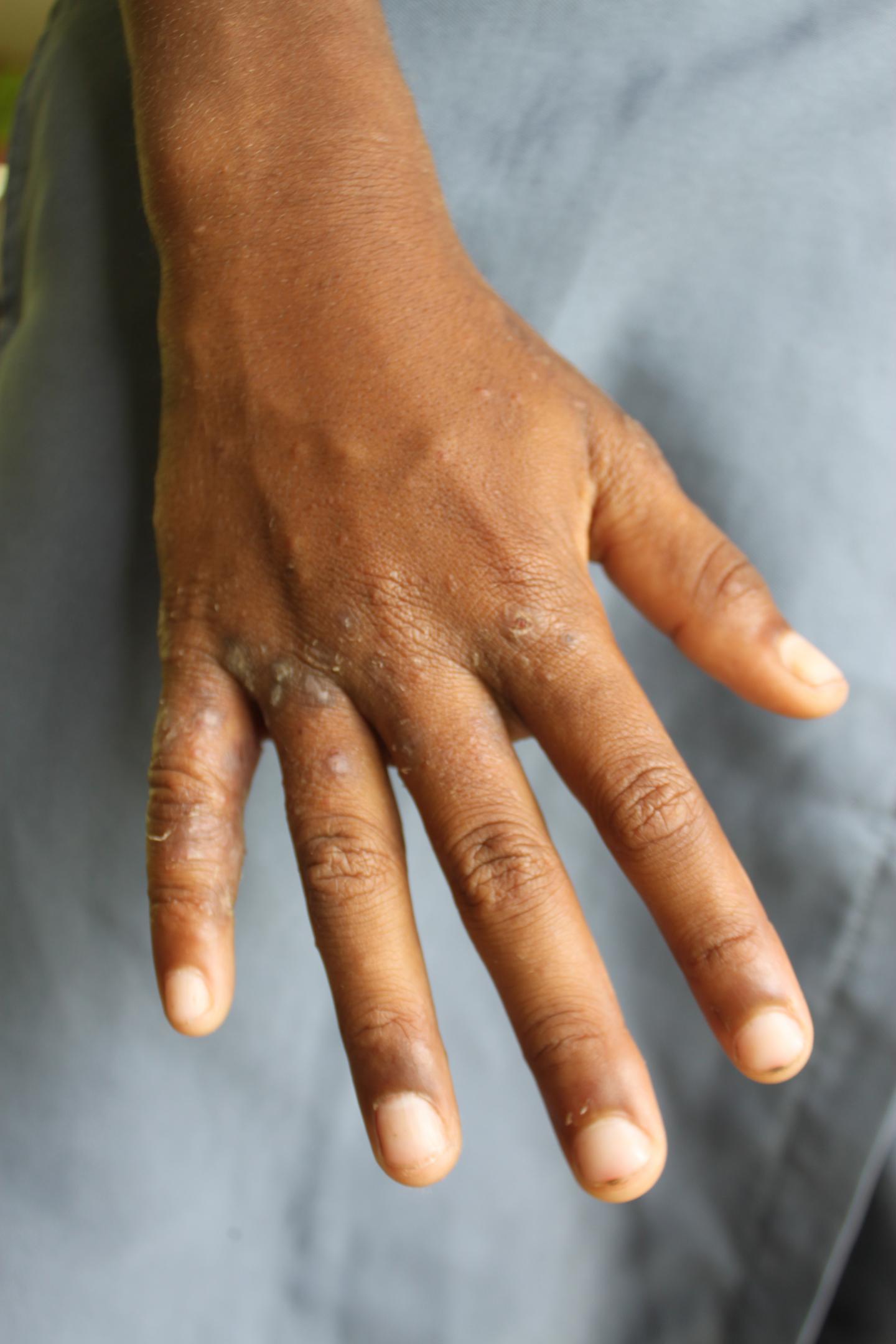
Credit: Lucia Romani, 2018, CC BY 4.0
For years, the diagnosis of scabies has relied on time-consuming and intrusive full-body examinations. Now, researchers reporting in PLOS Neglected Tropical Diseases have found that an exam of just a patient’s hands, feet and lower legs may have the potential to catch more than 90 percent of all scabies cases, regardless of severity. These speedier exams may be useful in public health assessments on the prevalence of scabies.
Scabies, a skin condition caused by the microscopic mite Sarcoptes scabiei, is a major public health problem in low- and middle-income tropical settings. There is no laboratory test for infestation and diagnosis is almost always made with clinical examination. Scabies control relies traditionally on diagnosing individual patients, however there is increasing use of mass drug administration programs. For mass drug administration to be a viables approach surveys of communities to gauge scabies prevalence will be needed.
In the new work, Michael Marks of the London School of Hygiene & Tropical Medicine and colleagues analyzed data from three recent large population-based surveys of scabies in the Solomon Islands and Fiji. In all three surveys, examinations of covered the arms, legs, face and torso. If patients reported itching in the groin, buttocks or breasts, these areas were also examined. Exams in children under 1 year covered the whole body. Reports of scabies in examined patients included which of nine body regions lesions were found in.
Based on the information where lesions were found, the team concluded that exams of exposed body regions–the hands, feet and lower legs– had close to 90 percent sensitivity for detecting scabies compared to a whole-body exam. Further restricting exams limited sensitivity, however, with a sensitivity of only 51.2 percent for exams of the hands alone.
“Our study adds valuable data to the development of a simplified diagnostic process for scabies that may be applied to guide decisions about future public health interventions,” the authors say.
###
In your coverage please use this URL to provide access to the freely available paper: http://journals.
Citation: Marks M, Engelman D, Romani L, Mason D, Sokana O, et al. (2018) Exploration of a simplified clinical examination for scabies to support public health decision-making. PLOS Neglected Tropical Diseases 12(12): e0006996. https:/
Funding: Michael Marks was supported by a Wellcome Trust Clinical Research Fellowship. The funders had no role in study design, data collection and analysis, decision to publish, or preparation of the manuscript.
Competing Interests: The authors declare that no competing interests exist.
Media Contact
Michael Marks
[email protected]
Original Source
http://journals.
Related Journal Article
http://dx.




